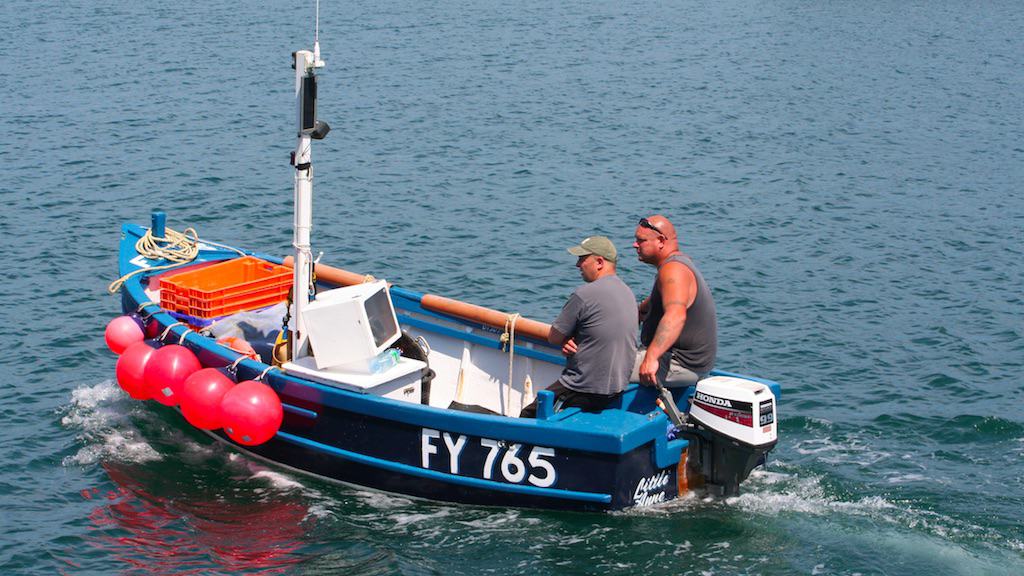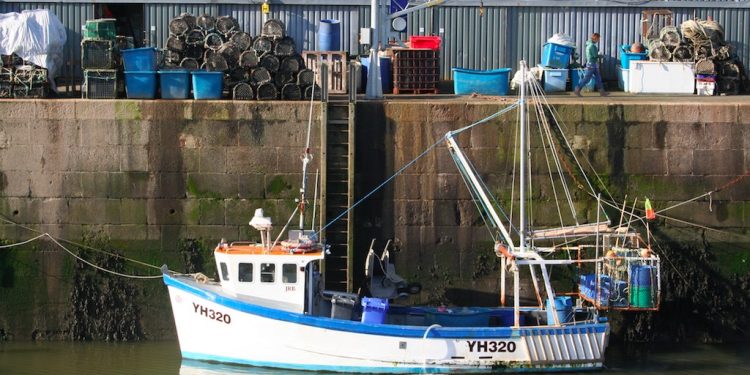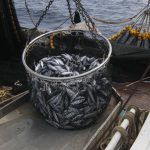There has been considerable turbulence between Inshore Fisheries Conservation Authorities and fishermen in their districts over recent months, according to NFFO Chairman Paul Gilson – to the point that in some areas the relationship between fishermen and the local IFCA has turned toxic.
‘Enforcement appears arbitrary, or even vindictive. Errors have been made. Nobody wants a law-breaking, free-rider in their area, but the IFCAs are increasingly seen as policemen rather than modern fisheries managers working for the benefit of the fishery and the fishing community,’ he said.

‘The unhappiness is not universal – IFCAs, fleets and issues vary around the coast – but the NFFO’s continuing tour of the ports is hearing, over and over again, about disproportionate enforcement, and a breakdown in what was previously a reasonably harmonious and positive relationship between the regulator and local inshore fishermen.’
He commented that there have always been tensions in certain IFCAs, and personality clashes can play a part, but the dissatisfaction is so widespread that he suggests that the breakdown in relations is appearing in so many areas that a systemic cause is suggested.
‘Covid hasn’t helped and lockdown created barriers to communication between face-to-face IFCA officers and fishers. Behind that, however, lies a fundamental change in IFCAs’ role. This change is driven by national policy on Marine Protected Areas. 50% of English inshore waters are now covered by MPAs of one kind or another and fisheries management within the district now takes second place to management measure within MPAs,’ he said.
‘The role of IFCAs is now largely dealing with the forest of paperwork associated with MPA assessments. Critically, because the burden of proof lies with the regulator and the industry, and the default is closure of the fishery, the burden falls on each IFCA to demonstrate that each fishing method is compatible with the conservation objectives of each site. The funds to deal with this new burden were inadequate from the start and the result is a fundamentally changed relationship between the IFCA and the fishermen in their district. Fisheries officers have been leached away to service the MPA assessment machine and have left fisheries management to lower qualified staff.’
In the front line

He commented that IFCAs are in the frontline in the delivery of the government’s policies and are bearing the brunt of the resulting frictions.
‘What inshore fishers are experiencing now will also be the future for offshore fisheries as the government maintains its gung-ho rush to extend the MPA network, presumably in order to burnish its green credentials,’ he warned.
‘The result inshore is the breakdown of relationships, mistakes and blunt, disproportionate policing rather than modern fisheries management based on the consent of those whose activities are being managed. When fishermen feel persecuted it is hard for them to see their IFCA as their saviour but unless IFCAs produce positive MPA assessments the law says that the fisheries must close.’
Changing role
‘It is this that is driving the way in which IFCAs’ role has changed and the way that IFCAs are now being perceived by many fishermen,’ Paul Gilson said.
‘I have spoken at length to the Association of IFCAs and they are insistent that the role of IFCAs is to manage the fisheries within their districts sustainably, for the benefit of the community. This aspiration is, however, being systematically undermined by their role in managing the MPA process. A collegiate relationship is being replaced by something much more toxic. This is the classic law of unintended consequences but unless it is addressed it will poison fisheries management from top to bottom in the coming years.’
He stressed that it is important not to give up on co-management, and the dialogue between Defra/MMO and inshore fishers is improving.
‘There is so much to prepare for, including fisheries management plans that impact on inshore fisheries,’ he said.
‘Certainly, at the level of the Association of IFCAs, there is a commitment to the regulators working closely with the industry on evidence-based management to support sustainable fisheries and the fishing communities that depend on them.’
However, Paul Gilson states that individual IFCAs must reaffirm their commitment to proportionate and risk-focused enforcement, communication must be improved and there must be a greater effort made to get fishers’ voices heard.
He added that central government must re-evaluate their nature conservation ambitions in light of the spatial squeeze, unintended side-effects, displacement and the impact on the way IFCAs are being forced to operate.
‘A degree of joined-up government is required. Fisheries management should be put back at the centre of what IFCAs do. Joint initiatives to address unlicensed fishing – especially for bass – should be undertaken, to improve and cement relationships,’ he said, commenting that there is a need to reset the relationship between IFCAs and the fishing industry to put co-operation back at the centre.
‘IFCAs should not be tasked by central government to undertake tasks that they are not resourced for, or equipped to deliver,’ Paul Gilson said.









